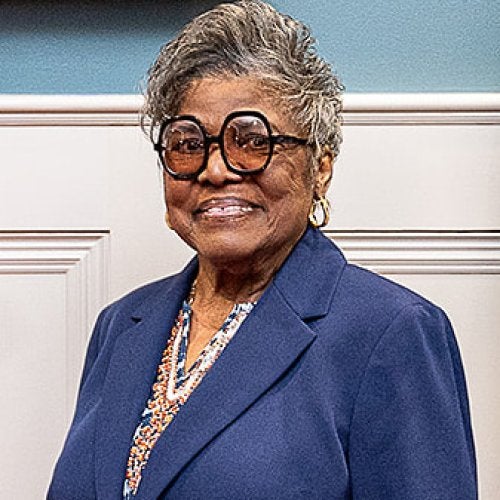WEB NEWS RELEASE
Theme: "K-12 Minority Students and STEM Participation: Powerful Local and National Models"
COLLEGE PARK, MD (March 2010) - Much is currently being written and reported about the importance of Science, Technology, Engineering and Mathematics (STEM) to our nation. It has also been noted that there is a critical underrepresentation of African American and Latino students pursuing these fields as careers.
This semester during its spring 2010 colloquia series, the College of Education's Maryland Institute for Minority Achievement and Urban Education (MIMAUE) will examine unique approaches being taken to address this issue at all levels of K-12. According to MIMAUE Executive Director Stephanie Timmons Brown, many programs are being developed to add to the number of STEM teachers, which is a part of this issue. However, she notes that beyond having more teachers, it is important to understand what motivates a minority student to enroll in STEM courses or to choose a STEM career.
"Many students report that their interest in STEM first began with an inspiring teacher, others report that an out-of-school activity sparked their curiosity for science," says Timmons Brown. "Throughout this series we're going to study a wide range of factors, documented by research, that influence STEM choices of minority students, and also learn about programs and activities that are successful in recruiting minority students to STEM."
Paula Shelton
The first session of MIMAUE's three-part colloquium series takes place on Wednesday, March 3. Featured speaker Paula Shelton will discuss Minority Students and STEM: National, State and Local Trends and Issues.
Shelton is executive director of the Maryland Mathematics, Engineering and Science Achievement (MESA) program, a K-12 initiative aimed at preparing students from underrepresented populations for degrees in STEM. Established in 1976, it is sponsored by the Johns Hopkins University Applied Physics Laboratory (JHUAPL) and currently has over 3,200 students from 10 Maryland counties enrolled in the program.
Prior to joining the JHUAPL family, Shelton was an educator. She held positions in Prince George's County Public Schools as a science teacher and technology coordinator. She was also a SMART Lab facilitator at the Friendship Collegiate Academy in Washington, D.C. Over the course of her teaching career she received several recognitions, including the Most Innovative Teacher Award. In addition to her teaching experience, Shelton has served as advisor and mentor for the National Society of Black Engineers Chapter and the US FIRST Robotics Team. She holds a B.S. degree from Howard University and a master's in Education from the University of Maryland University College.
MIMAUE colloquia are open to the campus community and the general public. All sessions take place from 4:30 to 6:30 p.m. in Room 0124, Tawes Hall. Please save the date for the remaining spring 2010 discussions:
- MARCH 24 ~ Focus on K-12 Exemplary STEM education projects
- APRIL 21 ~ Who or What Generated Your Interest in STEM:
A Discussion with Science, Engineering and Mathematics Undergraduate Students
To learn more about the MIMAUE colloquium series, contact Executive Director Stephanie Timmons Brown (phone: 301.405.5211; email: stbrown@umd.edu) or Professor Emeritus Martin L. Johnson (mljohnso@umd.edu). Also visit the MIMAUE web site: www.education.umd.edu/MIMAUE.
-end-
For more information on the College of Education, visit: www.education.umd.edu
or contact
Halima Cherif, Assistant Director for Communications, at: hcherif@umd.edu



